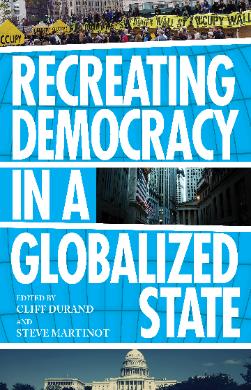José Bell Lara is professor at the Latin American Faculty of Social Sciences, University of Havana (FLACSO-Cuba). He has written Globalisation and the Cuban Revolution (2002) and Cuban Socialism within Globalisation (2007). Bell Lara is part of the international advisory board of the journal CriticalSociology.
Orlando Cruz Capote holds a Doctorate in Historical Science. He is a researcher at the Instituto de Filosofía and its former scientific subdirectory from 2005-2008. He is Professor at the Higher Institute of International Relations Raúl Roa García and a member of the Nacional Union of Cuban Writers and Artists (UNEAC), as well as a founder of the Cuban Union of National History. For 35 years he has done historical, philosophical and political rsearch. His recent publications include Apuntes para la historia del movimiento juvenil cubano (1987); El Peligro Mayor (1993); Historia de la Revolución Cubana 1959-2000 (2001-Inédito); Proyección Internacional de la Revolución Cubana hacia América Latina y el Caribe (1959-1962); "El contexto histórico-político y filosófico del debate teórico internacional sobre la Identidad Nacional: Un estudio acerca de su re-conceptualización en Cuba y un balance historiográfico de lo publicado en el país entre 1989 y el 2005” (2006); Cuba: Nación y Raza en el siglo XX (2010). He has written essays such as the problem of the Nation-state and continuing research on globalization and nationalism, participation and socialism and contemporary international relations.
Cliff DuRand is a Research Associate at the Center for Global Justice, which he co-founded in 2004. He is also coordinator of Research Network in Cuba and has led trips annually to Cuba since 1990. A veteran of the 1960s social movements, he has worked to build institutions of the Left. In 1982 he co-founded the Radical Philosophy Association and the Progressive Action Center, long the “home” of the Left in Baltimore. For 40 years he was a professor of Social Philosophy at Morgan State University. His continuing research and activism focuses on globalization, participatory democracy and socialism.
Steve Martinot has been a human rights activist for most of his life, as union organizer, community organizer, and anti-war organizer, including Latin America solidarity work. He has worked as a machinist and truck driver, and taught literature and cultural studies at the Univ. of Colorado and San Francisco State University. His latest book is "The Machinery of Whiteness," from Temple University Press. His two preceding books, also from Temple, are "The Rule of Racialization" and "Forms in the Abyss: a philosophical bridge between Sartre and Derrida." He lives in Berkeley, CA, leads seminars on the structures of racialization in the US, and is active in a neighborhood assembly and participatory budget movement.
Armando Cristóbal Pérez holds a doctorate in Political Science from the University of Havana. He has taught there as well as at the Higher Institute of International Relations. He has held diplomatic postings in Moscow and Madrid. He has been Executive Secretary of the National Union of Cuban Writers and Artists (UNEAC) as well as a founder and Vice President of the Cuban Society for Philosophical Research (SCIF). His recent publications include Literatura y sociedad en Cuba (Ensayos literarios), Del acoso a la consagración. La Cuba del siglo XX en la novelística de Alejo Carpentier (Investigación literaria), Las puertas del infierno también son verdes (cuentos), Un traspatio en el jardín (cuentos ), El Estado Nación. Su origen y construcción (investigación y estudio de teoría política) y ena con Buda (novela-thriller en proceso de edición).
Olga Fernandez Rios is a Researcher at the Instituto de Filosofia and its former Director from 1988 to 1999. She was professor of Marxist studies and sociopolitical theory at the Central University in Villaclara and at the University of Habana. She has held diplomatic postings, first in the Cuban Mission at the UN in New York and for the last 10 years in the Cuban Interest Section in Washington DC and in the Cuban Embassy in Chile, in both places in charge of Academic Exchanges. She is a member of the Cuban Academy of Sciences. Her research interests focus on the theory and practice of democracy, state and political system. Among her publications are: “Formación y Desarrollo del Estado Socialista en Cuba;” “La terca actualidad del socialismo;” “Democracia: mito y realidad”; “Democracia y Justicia Social: romper el mito o buscar alternativas;” “Socialismo y Democracia en el pensamiento político de Che Guevara;” “Socialismo y Valores Éticos. Una reflexión a partir de El Socialismo y el Hombre en Cuba de Ernesto Che Guevara;” “Cuba: participación popular y sociedad;” and “El Socialismo en Cuba: Búsqueda y Descubrimiento.”

